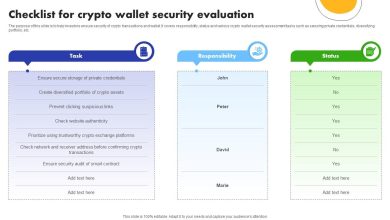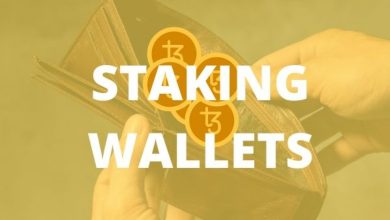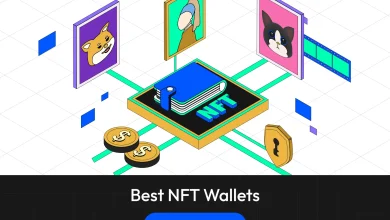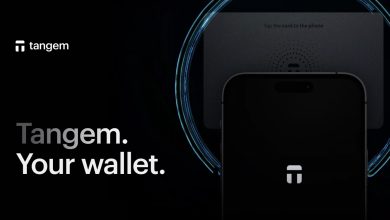Wallets for ERC-20 Tokens and Ethereum-Based Assets

- Understanding ERC-20 Tokens and Ethereum-Based Assets
- Choosing the Right Wallet for Your ERC-20 Tokens
- Security Features to Look for in Wallets for Ethereum-Based Assets
- Comparing the Top Wallet Options for ERC-20 Tokens
- Tips for Safely Storing and Managing Your Ethereum-Based Assets
- The Future of Wallets for ERC-20 Tokens and Ethereum-Based Assets
Understanding ERC-20 Tokens and Ethereum-Based Assets
ERC-20 tokens and Ethereum-based assets are digital assets built on the Ethereum blockchain. These tokens follow a specific set of rules and standards known as the ERC-20 standard, which ensures compatibility and interoperability between different tokens. Understanding ERC-20 tokens is essential for anyone looking to store, send, or receive these assets.
ERC-20 tokens can be stored in Ethereum wallets that support these assets. These wallets allow users to manage their tokens securely and access them whenever needed. It is crucial to choose a reliable wallet that is compatible with ERC-20 tokens to ensure the safety of your assets.
When using wallets for ERC-20 tokens and Ethereum-based assets, it is essential to keep your private keys secure. Private keys are used to access your wallet and authorize transactions, so it is crucial to store them safely and never share them with anyone. Losing your private keys can result in losing access to your assets permanently.
Overall, understanding ERC-20 tokens and Ethereum-based assets is crucial for anyone involved in the cryptocurrency space. By familiarizing yourself with these digital assets and how to store them securely in wallets, you can ensure the safety and accessibility of your investments in the long run.
Choosing the Right Wallet for Your ERC-20 Tokens
When it comes to managing your ERC-20 tokens and Ethereum-based assets, choosing the right wallet is crucial. There are several factors to consider when selecting a wallet that meets your needs.
One important consideration is the type of wallet you prefer. You can opt for a hardware wallet, which offers enhanced security by storing your tokens offline. Alternatively, you may choose a software wallet for convenience and accessibility.
Another factor to keep in mind is the wallet’s compatibility with ERC-20 tokens. Ensure that the wallet you select supports these tokens to avoid any compatibility issues. Additionally, consider the user interface and features offered by the wallet to ensure a seamless user experience.
Security is paramount when it comes to managing your digital assets. Look for wallets that offer robust security measures such as two-factor authentication and encryption to safeguard your tokens. It’s also advisable to choose a wallet with a strong reputation in the crypto community to minimize the risk of security breaches.
Lastly, consider the wallet’s customer support and reputation. Opt for a wallet provider that offers responsive customer support to address any issues or concerns promptly. Additionally, look for reviews and feedback from other users to gauge the wallet’s reputation and reliability.
By taking these factors into account, you can choose the right wallet for your ERC-20 tokens and Ethereum-based assets with confidence. Remember to prioritize security, compatibility, user experience, and customer support when making your decision.
Security Features to Look for in Wallets for Ethereum-Based Assets
When choosing a wallet for your Ethereum-based assets, it is crucial to consider the security features it offers. Here are some key security features to look for in wallets for ERC-20 tokens and other Ethereum-based assets:
1. **Multi-factor authentication**: Opt for wallets that offer multi-factor authentication to add an extra layer of security to your account. This feature requires users to provide two or more forms of verification before accessing their wallet, making it harder for unauthorized individuals to gain access.
2. **Hierarchical Deterministic (HD) wallet**: An HD wallet generates a new public address for each transaction, enhancing privacy and security by reducing the risk of address reuse. This feature also makes it easier to manage multiple Ethereum-based assets within the same wallet.
3. **Backup and recovery options**: Choose a wallet that allows you to easily backup and recover your funds in case your device is lost or stolen. Backup options such as seed phrases or private keys are essential for ensuring that you can regain access to your assets.
4. **Cold storage support**: Cold storage wallets, such as hardware wallets, offer an extra layer of security by keeping your private keys offline. This reduces the risk of hacking or unauthorized access, making it an ideal choice for storing large amounts of Ethereum-based assets.
5. **Secure enclave technology**: Some wallets use secure enclave technology to protect your private keys from being exposed to potential threats. This hardware-based security feature ensures that your keys are stored in a secure environment, safeguarding your assets from malicious attacks.
By prioritizing wallets that offer these security features, you can better protect your Ethereum-based assets from potential threats and ensure peace of mind when managing your digital assets. Remember to always research and choose a reputable wallet provider to safeguard your investments effectively.
Comparing the Top Wallet Options for ERC-20 Tokens
When it comes to managing your ERC-20 tokens and Ethereum-based assets, choosing the right wallet is crucial. There are several top wallet options available that cater to the needs of different users. Let’s compare some of the most popular wallets to help you make an informed decision:
1. **MetaMask**: MetaMask is a browser extension wallet that allows users to interact with the Ethereum blockchain easily. It is known for its user-friendly interface and seamless integration with decentralized applications (dApps). MetaMask also offers a secure way to store and manage ERC-20 tokens.
2. **MyEtherWallet (MEW)**: MyEtherWallet is a web-based wallet that provides users with a simple and intuitive interface for managing their Ethereum-based assets. It allows users to create new wallets, access existing ones, and interact with smart contracts. MEW is a popular choice among users who prefer a web-based solution.
3. **Ledger Nano S**: The Ledger Nano S is a hardware wallet that offers enhanced security features for storing ERC-20 tokens. It is a cold storage solution, meaning that it keeps your private keys offline, away from potential cyber threats. The Ledger Nano S is ideal for users who prioritize security and want to keep their assets safe.
4. **Trezor**: Trezor is another hardware wallet that provides a secure way to store ERC-20 tokens and other cryptocurrencies. It offers a user-friendly interface and supports multiple currencies, making it a versatile option for users with diverse portfolios. Trezor is known for its robust security features and ease of use.
5. **Trust Wallet**: Trust Wallet is a mobile wallet that allows users to store, send, and receive ERC-20 tokens on the go. It offers a simple and intuitive interface, making it easy for beginners to get started with managing their assets. Trust Wallet also supports a wide range of cryptocurrencies, making it a convenient option for users with diverse holdings.
In conclusion, choosing the right wallet for your ERC-20 tokens and Ethereum-based assets depends on your specific needs and preferences. Whether you prioritize security, ease of use, or versatility, there is a wallet out there that can meet your requirements. Consider the features and benefits of each wallet mentioned above to find the one that best suits your individual needs.
Tips for Safely Storing and Managing Your Ethereum-Based Assets
When it comes to storing and managing your Ethereum-based assets, it is crucial to follow best practices to ensure the security of your investments. Here are some tips to help you safely store and manage your ERC-20 tokens and other Ethereum-based assets:
- Use a Hardware Wallet: Consider using a hardware wallet to store your Ethereum-based assets offline, away from potential online threats.
- Backup Your Private Keys: Make sure to securely backup your private keys in multiple locations to prevent loss of access to your assets.
- Enable Two-Factor Authentication: Add an extra layer of security to your wallets by enabling two-factor authentication wherever possible.
- Keep Your Software Updated: Regularly update your wallet software to protect against any known vulnerabilities.
- Avoid Phishing Scams: Be cautious of phishing scams and only interact with official websites and wallets to prevent unauthorized access to your assets.
- Diversify Your Storage: Consider diversifying your storage solutions by using a combination of hardware wallets, paper wallets, and secure online wallets.
- Monitor Your Assets: Regularly monitor your Ethereum-based assets for any suspicious activity and report any unauthorized transactions immediately.
- Seek Professional Advice: If you are unsure about the best practices for storing and managing your assets, consider seeking advice from a professional in the field.
By following these tips, you can help ensure the safety and security of your Ethereum-based assets, protecting your investments for the long term.
The Future of Wallets for ERC-20 Tokens and Ethereum-Based Assets
As the popularity of ERC-20 tokens and Ethereum-based assets continues to grow, the future of wallets for these digital assets is becoming increasingly important. Wallets play a crucial role in securely storing, sending, and receiving these tokens, making them an essential tool for anyone involved in the cryptocurrency space.
One of the key trends in the development of wallets for ERC-20 tokens and Ethereum-based assets is the focus on security. With the increasing value of these digital assets, ensuring the safety of funds has become a top priority for wallet developers. Many wallets now offer advanced security features such as multi-signature support, biometric authentication, and hardware wallet integration to protect users’ assets from theft and hacking attempts.
Another important aspect of the future of wallets for ERC-20 tokens and Ethereum-based assets is the emphasis on user experience. Developers are working to create wallets that are not only secure but also easy to use and navigate. Intuitive interfaces, seamless integration with decentralized applications, and support for a wide range of tokens are all features that users can expect to see in the next generation of wallets.
Interoperability is also a key focus for the future of wallets for ERC-20 tokens and Ethereum-based assets. With the growing number of tokens and assets being built on the Ethereum blockchain, users need wallets that can support a wide range of assets and facilitate seamless transactions between different tokens. Wallet developers are working to create solutions that allow users to manage all of their digital assets in one place, making it easier to track and transfer funds across different platforms.
In conclusion, the future of wallets for ERC-20 tokens and Ethereum-based assets is bright, with developers focusing on security, user experience, and interoperability to create the next generation of digital asset management tools. As the cryptocurrency space continues to evolve, users can expect to see more advanced and user-friendly wallets that make it easier than ever to store and transact with their digital assets.



